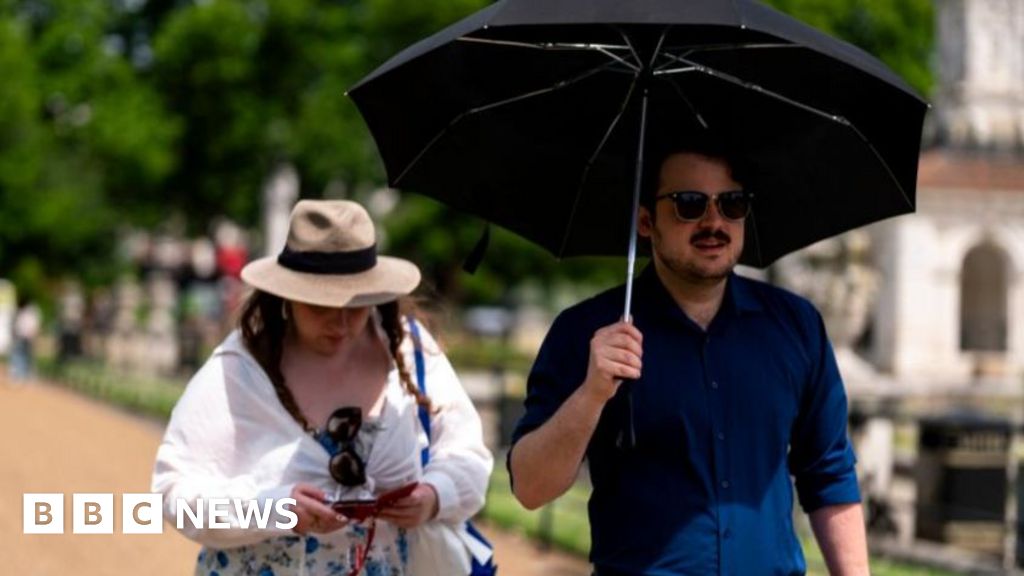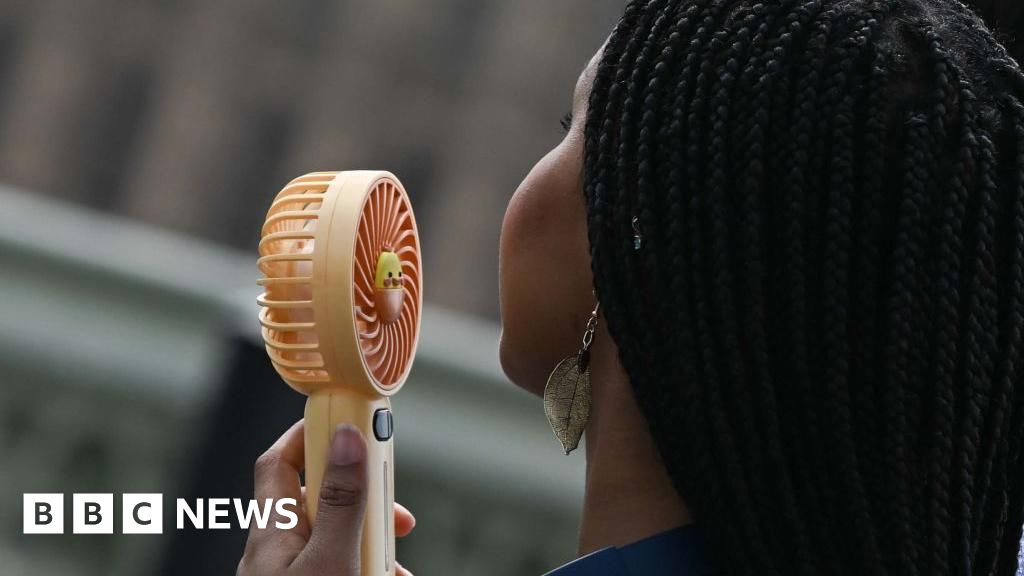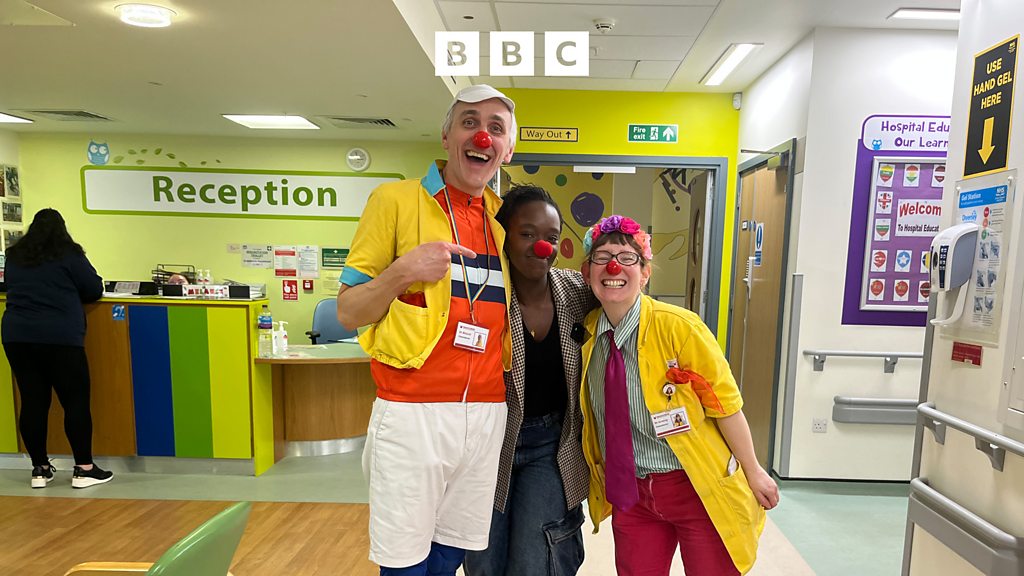ARTICLE AD BOX
Mal O'Donnell says not feeling alone is so important for cancer patients
By Jenny Rees
BBC Wales health correspondent
The Covid-19 pandemic cannot continue being blamed for poor cancer care, a charity boss has said.
Judi Rhys, of Tenovus Cancer Care, said urgent action was needed to save lives when more people than ever are living with cancer in Wales.
It comes as the Wales Cancer Network publishes a three-year plan to improve cancer outcomes and patient experience.
But the group's clinical director warned the immediate priority would be maintaining current services.
Prof Tom Crosby, clinical director for Wales Cancer Network, which was tasked by Wales' health minister to draw up the improvement plan, said the biggest pinch point at the moment was access to diagnostics.
"We're absolutely trying to shorten overall times for patients coming into the system being diagnosed and then being treated," he said.
The improvement plan includes plans for rapid diagnostic centres to reduce the time patients spend waiting for tests and treatment.
It also sets out commitments for a lung cancer screening service, remote dermatology services and for all patients to have a key worker by the end of March 2024, as well as a 24-hour advice and triage service for those being treated for cancer and to establish a patient forum by the end of March 2023.
On average in November, people suspected of having cancer had to wait 17 days for a first appointment and 23 days for a first test.
It was an average 31 days from point of suspicion to being told if they had cancer or not and an average 24 days from point of diagnosis to treatment starting.
"We hope that this year we will develop the first regional diagnostic centre and that is likely to be in south-east Wales," Prof Crosby said.
"We know that coming out of the pandemic, and through the winter that we've experienced, services are under huge pressure and I think it's maintaining those services and the quality of care we are delivering at the moment is the priority.
"But I think over the next two to three years we would want to then see us getting through that backlog and actually improving patient outcomes ultimately from cancer care."
More than 15,000 people a month in Wales have been referred with suspected cancer and about 88% later discover they do not have it.
The latest figures showed on average, about 1,650 patients started their first cancer treatment each month.
A plan to address cancer outcomes in Wales has long been called for by charities and politicians.
Image source, BBC Sport
Image caption,Judi Rhys says cancer treatment has "regressed, not progressed"
Ms Rhys said a strategy was an important first step, but action was required.
"Our dedicated NHS colleagues have faced incredible challenges over recent years, which were only exacerbated by the pandemic," she said.
"More people will die - who may have otherwise survived - because of decisions made to stop the health service becoming overwhelmed.
"We have regressed, not progressed. While we know the health service is under great strain, it's time to stop blaming the pandemic. Cancer services need urgent attention."
Mal O'Donnell was first diagnosed with prostate cancer about 12 years ago, but three years ago the former painter and decorator from Cardiff was told it had spread to his bones.
The 76-year-old said since the pandemic he feels staff are no longer able to provide the same type of care.
"I don't think they can give you that hand on the shoulder and ask: 'Are you alright, Mal?'"
"I don't know if it's because they haven't got the time, which is probably true. Before I never felt like a name or number, but now I do," he said.
"You could no way blame the staff that's there. You can't do that, but you can blame the fact there's not enough of them.
Image source, Getty Images
Image caption,Around 1,650 patients started their first cancer treatment each month in Wales
"You go in there at the most emotional time of your life, facing the most horrendous time of your life and you need people there that understand you, that you can lean on. Not feeling alone is so important."
Claire Birchall, manager of the Wales Cancer Network, acknowledged there had been a really difficult couple of years following the pandemic, but cancer was also a big challenge before Covid.
One of the big challenges will be the workforce, she said, where there are "lots of vacancies" and "a very tired workforce".
Health minister Eluned Morgan said health boards "have the money in their budgets - it's up to them to prioritise".
"Over the past 10 years we've seen almost a doubling of the amount we spend on cancer, from £300m to £600m".

 2 years ago
66
2 years ago
66








 English (US) ·
English (US) ·